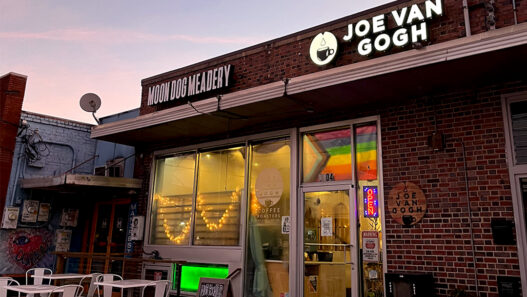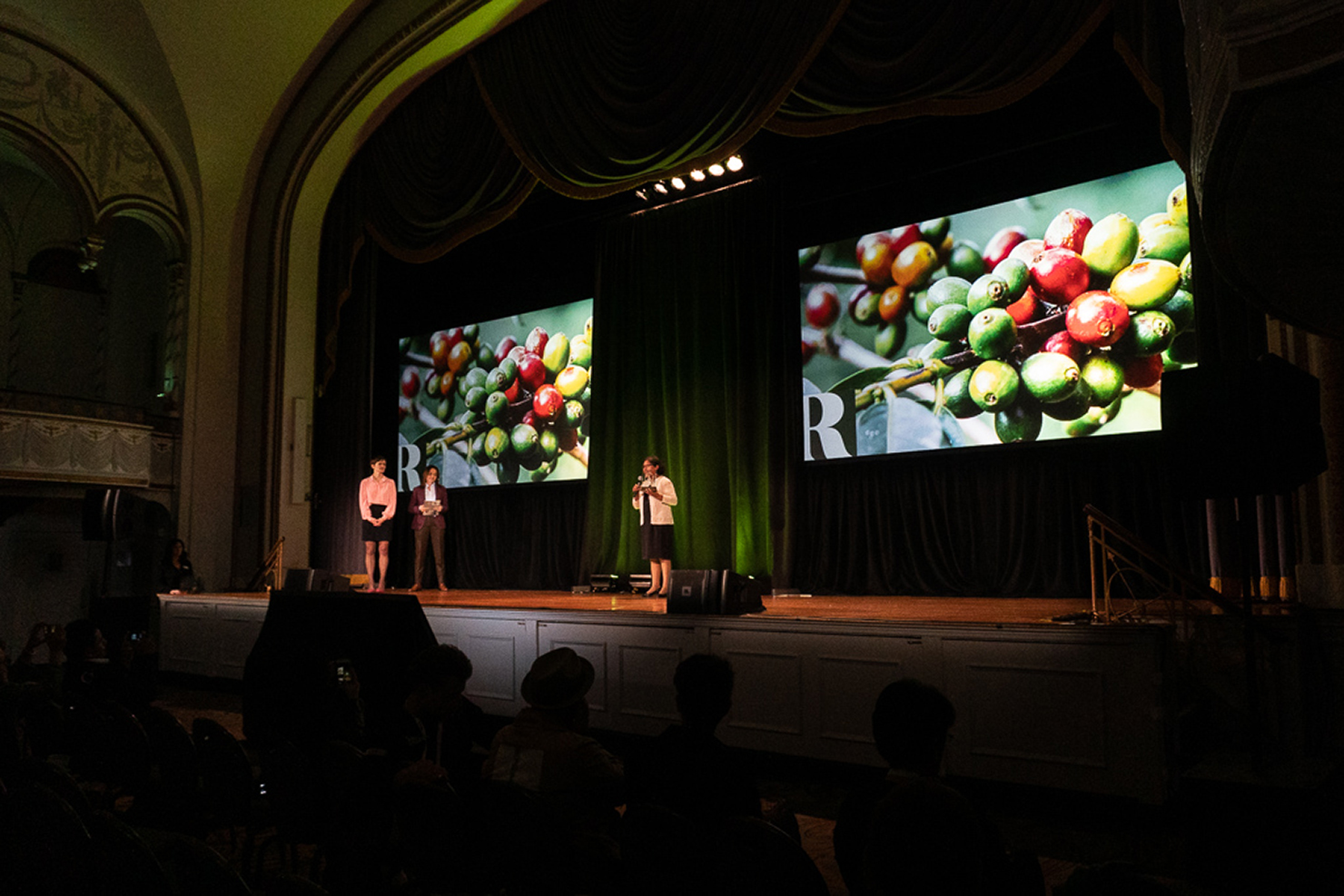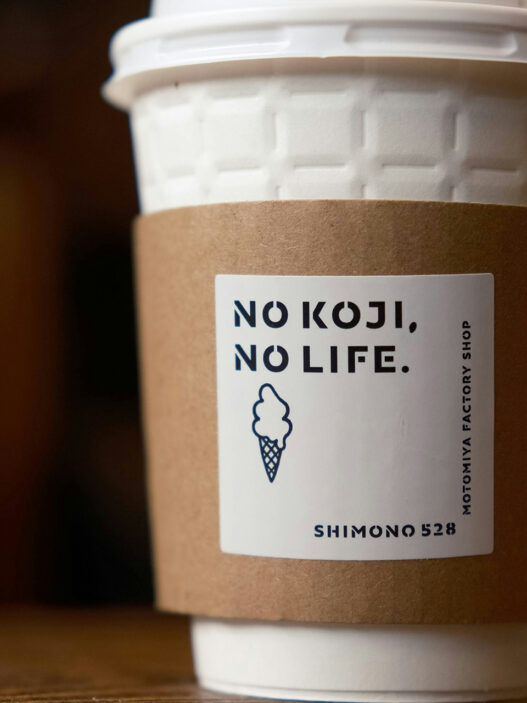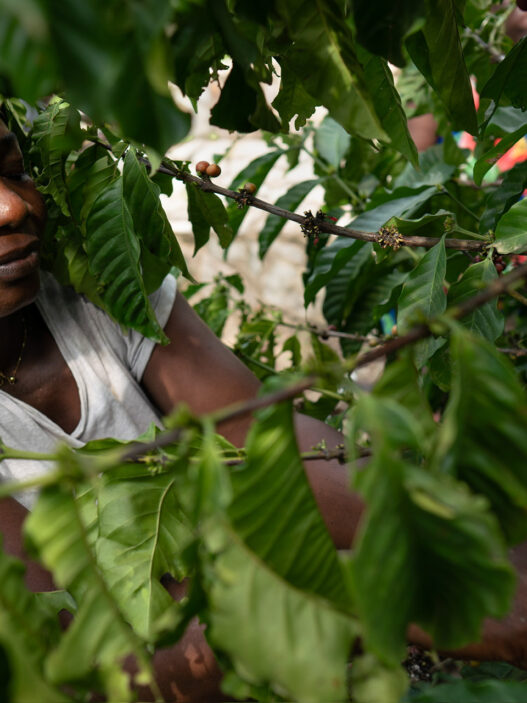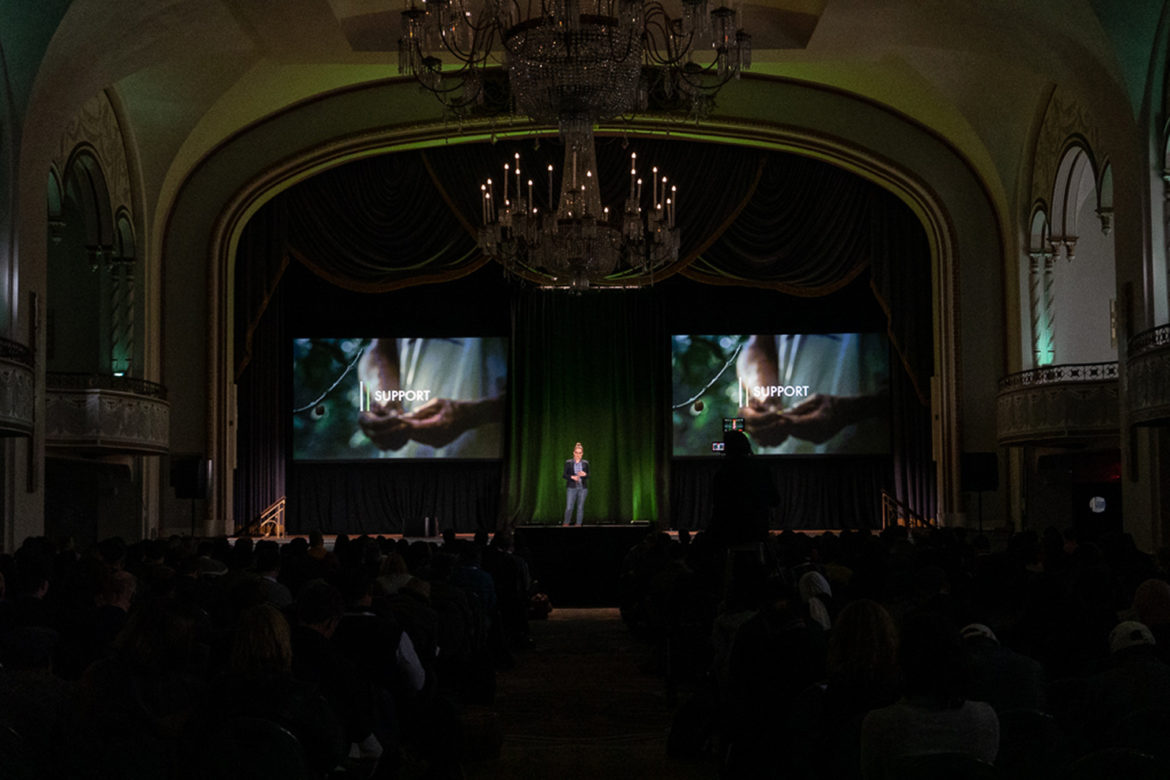
Emboldened by my trusty press pass, I was lucky enough to get behind the velvet rope at Boston’s 2019 Re:Co event. Whereas Re:Co—an event put on by the Specialty Coffee Association that has often been likened to the Ted Talks of coffee—usually focuses on a variety of subjects relevant to thought leaders in specialty coffee, this year’s event homed in on just one subject: coffee’s C market price crisis.
Attacking the crisis from a multiplicity of angles, the event started at the macro then moved to the micro, moving from producer to consumer and back to producer. The goal of this year’s content was to move ideas toward action; everyone was asked during Re:Co founder Peter Giuliano’s opening remarks to think about their Re:Co pledge, and for the first time, Re:Co attendees were split into interactive group sessions to find and commit to those pledges. There were way too many amazing speakers for me to be able to cover all of them, so to follow the event blow by blow, check out our coverage on Sprudge Live under Re:Co Boston’s official hashtag #RecoBoston. To learn more about the larger themes engaged at Re:Co, read on!
A Key Highlight to Set the Stage
One highlight I want to lead with is the single exit fallacy. Brought to the Re:Co stage by Yale post-doc Janina Grabs, the single exit fallacy starts with an analogy: picture a crowded theater when a fire breaks out. The theater has an emergency exit and people start exiting; the first person gets out fine, as does the second, and the third, but what about the hundredth? This is Grabs’s analogy for using quality differentiation to help farmers exit the C market.
As more farmers try to produce quality coffee that will allow them to differentiate their way to better prices, they incur increased cost of production that cuts into their quality premiums (if they receive as-promised premiums at all). At the same time, the increasing mainstreaming of specialty also means that the concept becomes watered down, making it harder—not easier—for producers to differentiate by producing quality. Grabs’s talk hurt; it laid out an essential failing of the third wave movement, one which few even acknowledge, much less address. By focusing on quality, we’re trying to move select people out of an emergency exit rather than turning on the sprinkler system that would quench the fire, ensuring that all coffee producers make a living wage regardless of the quality of coffee they produce.
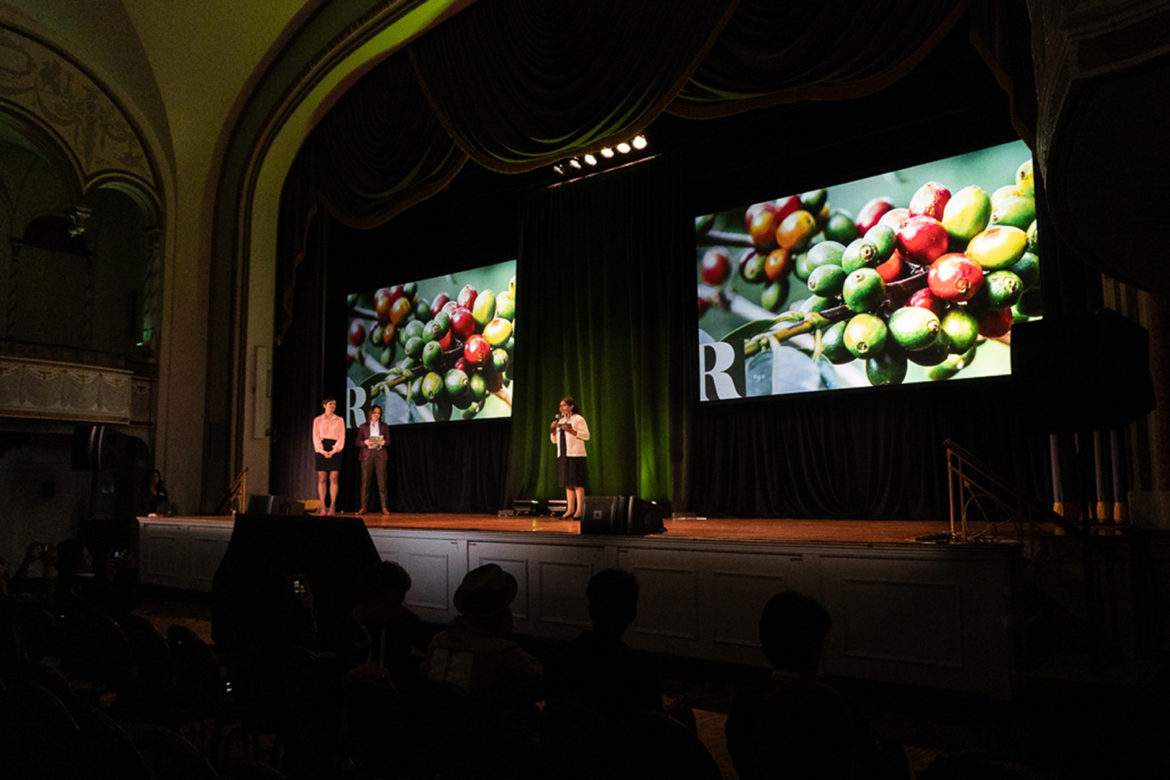
The Macro Level
After kicking off the event, Giuliano welcomed former SCA Executive Director Emeritus Ric Rhinehart to the stage to lay out the coffee price crisis as it stands. Using the analogy of the heart condition that led to the heart attack he survived, Rhinehart described the coffee price crisis in similar terms. While the C price’s drop to around a dollar for an extended period of time is indeed a crisis in the same way a heart attack is, it doesn’t happen in a vacuum: the conditions that allowed this to happen are chronic, even as this episode is acute. “We can see that coffee follows a typical boom-bust cycle,” said Rhinehart, displaying a graph of coffee prices over the last 40 years. “This is typical market behavior, but the average price throughout has never adjusted for inflation over 40 years.” So even if the C price were in a more “normal” place, it still wouldn’t have adjusted for cost increases that producers experience.
On the more esoteric side, trade attorney Jeff Glassie dropped some knowledge about how antitrust laws can sometimes constrain organizing around prices. Some things that are illegal under antitrust laws include price fixing (collectively deciding that you will only accept a certain price) and boycotts.
Pushing back on oft-repeated beliefs that are completely unsubstantiated (eg. “we only use 10% of our brains”), Peter David of Enveritas collected mass data on how many coffee farms there really are (that would be 12.5 million, not the oft-cited 28 million). He admonished us to question everything, to be cynical, and to think about how we know what we know.
Discussing market consolidation and hitting us right in the facts with a slate of necessarily depressing statistics, Andrea Olivar of Solidaridad talked to us about the Coffee Barometer, a major market survey on key market trends in coffee, a resource that alerted many to the severity of the crisis. Some salient stats:
- As an industry, our annual investment in sustainability is under 1%.
- Only 10% of the value generated by the coffee industry directly reaches producing countries.
- 55% of global coffee production is certified, but only 20% is actually sold as such.
On Day 2, Peter Roberts of Emory University talked to us about his work on the Specialty Coffee Transaction Guide, a guide that collates prices paid for coffee shared anonymously by coffee buyers. In discussions of taking coffee off the C market, he found that one of the main points of resistance was that people wanted a benchmark, and harmful as it is, the C market does offer that—but, as Roberts said, “Almost any benchmark would be better than the C market. My weight would even be a better benchmark for coffee prices than the C market.” So he’s working on the Transaction Guide, hoping it will act like the World Coffee Producers Forum presented to us “on behalf of all the producers of the world, many of whom couldn’t be here.”
Texas A&M doctoral candidate Taya Brown also discussed issues of profitability, specifically for smallholders in Guatemala. ”I’m sure some of you pay really fair prices for coffee that you buy,” she said, pointing out (similarly to Grabs) that producing quality raises costs. “The issue is that the quality has to be there first.” Brown encouraged us to think about profitability in terms of not just money, but also of knowledge, and to always share knowledge.
Utilizing live translation earpieces for the first time, SCA board member Chad Trewick hosted a multi-language panel featuring Rene Leon Gomez, Herbert Peñalosa, Peter Dupont, and Michelle Bhattacharyya. Gomez laid out some painful statistics, including the fact that the US coffee industry received more money last year than all of 25 million coffee producers in the world. Peñalosa focused heavily on the importance of sharing knowledge; farming is skilled labor, and not everyone has the knowledge toolkit that would allow them to achieve profitability. Dupont discussed how pushes for transparency can look in a retail setting, from writing numbers on walls to printing them on cups. Bhattacharyya talked about her work on establishing a living wage project in the banana industry, and how that experience would benefit the coffee industry by both educating consumers and empowering them to make values-based purchases.
Further emphasizing the role of education and sharing knowledge, Enrique Magana of the Salvadoran miller and exporter Magana Coffee talked about how lack of access to knowledge of best practices hinders farmer profitability.
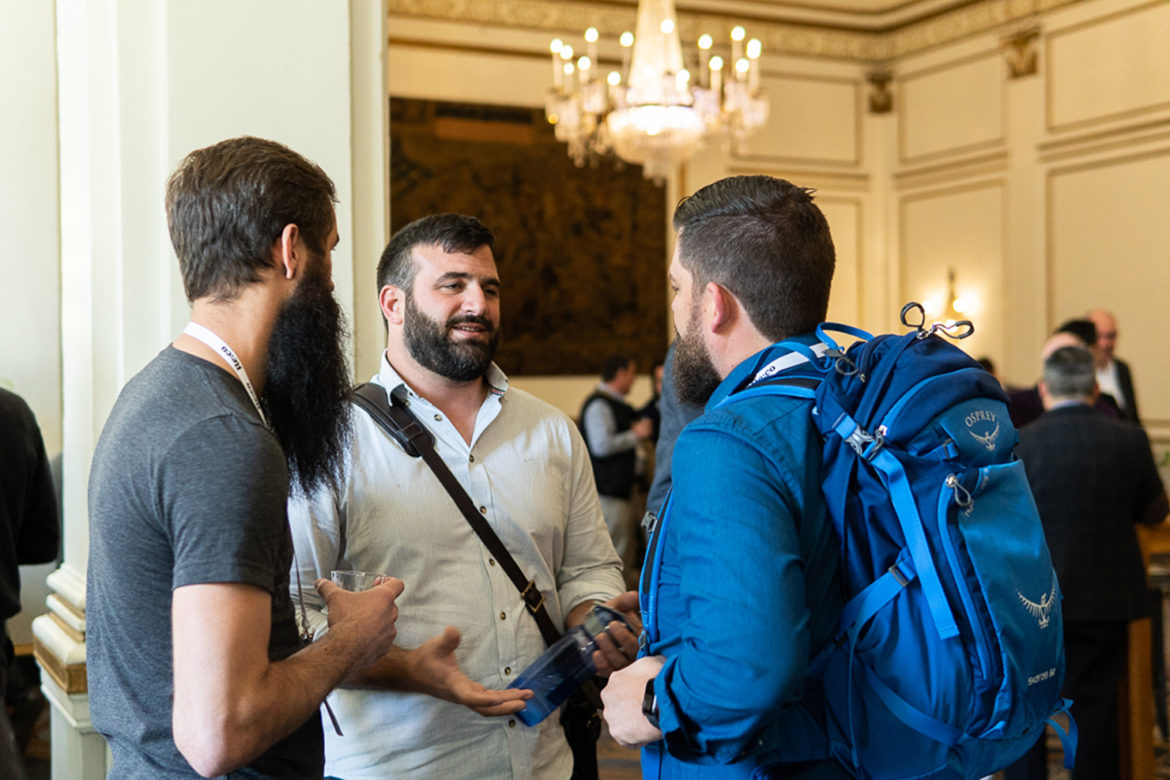
The Consumer Side
While production is a necessary and fascinating focus of much of Re:Co’s content, I found talks on the consumer side incredibly engaging, featuring stars like Michelle Johnson of The Chocolate Barista, Phyllis Johnson of BD Imports, and Red Bay Coffee founder Keba Konte.
Michelle Johnson started off her talk with an intriguing proposition about a coffee company whose consumer face is recognizable to all of us: “What if I told y’all that there’s someone who’s doing everything specialty is and more? And what if I told you that was McDonald’s.” In 2014, McCafe made a commitment to source all of their coffee sustainably by 2020—and so far, according to Johnson, they’re completely on track. But what does that mean in such a large company? Is it just marketing? According to Johnson, no; McDonald’s actually created their own certification standards that work alongside existing certifications, and goes even further. Michelle Johnson’s session was the talk of Re:Co Boston, showing her range as a speaker and on one of coffee’s biggest stages.
Phyllis Johnson, who hosted the larger session on consumer trends, shared some salient facts about coffee consumption and changing demographics: while white consumers were once the main consumers of coffee (both specialty and commodity), the gap has closed. Now, white gourmet coffee consumption has actually dropped off and ethnic minorities are filling the gap. Black consumers, in particular, are drinking equal amounts of gourmet coffee to white consumers. According to Johnson, these numbers highlight how far specialty coffee has come in terms of diversity—“but we still have a long way to go.” She encouraged us to let go of sameness and rethink the definition of specialty coffee.
Johnson then welcomed Konte onto the stage for a conversation on bringing new groups of people into coffee as workers and consumers. Knowing that an entire workforce and consumer base in Oakland, CA was underserved and underutilized, Red Bay focused on hiring diversely and creating space that truly feels like it’s for everyone. “It’s important to try harder, be more intentional, and get creative,” said Konte, who pulled staff members from a diverse range of industries like chocolate and wine. Discussing the decolonizing work his company seeks to do in coffee, he introduced the nomenclature “value streams” as an alternative to “value chains,” pointing out that “coffee is an industry that, like cotton, is founded on slave labor.” Konte also explained how African Americans can find connection with coffee through its connection to Africa.
Moving us to coffee consumption around the equator, SCA board member Vera Espindola Rafael questioned the term “producing countries” and talked about the thriving cafe and consumer scene in countries that grow coffee, from Brazil to Colombia to Mexico. Not only are consumers there excited about specialty coffee, they’re willing and able to pay for it, and in the case of Mexico, coffee producers make more money and save hassle and energy selling their coffee to local roasting companies. “Specialty coffee is still niche in countries that grow coffee,” said Espindola Rafael. “But coffee retailers are driving new trends and influencing consumers to appreciate the value they add. Can we continue to build on this?”

Moving Ideas to Action
At the beginning of Re:Co, we were asked to choose between four labels: influencer, thinker, skeptic, and financial mind. In the middle of day two, we were split into interactive change-making sessions with our chosen cohort (in case you were wondering, I’m a skeptic). In these sessions, we looked through our particular lenses and put down pledges that make sense within our personal spheres of influence. To see the pledges taken by various attendees, follow the hashtag #MyRecoPledge.
As I mentioned earlier, this interactive session was a first for Re:Co, and a necessary one. It’s important that people attending an exclusive event like Re:Co use their privilege to drive action and move the industry forward. I was lucky to attend Re:Co, and as Chad Trewick said, “Most of the people affected by the coffee crisis can’t even dream of being here in this room, and we need to sit with that for a minute.” With Browning of Enveritas’s revelation that one in ten coffee farmers will lose a child to hunger this year, there was a definite dissonance inherent to the luxurious banquet hall in which we enjoyed the event and the plentiful food and coffee we had access to.
“What will the future say about us, the coffee industry,” asked Browning. “I think they will say we didn’t do enough.” We as an industry need to move forward in action, even if we don’t know what a comprehensive solution looks like, and Re:Co aimed to push us in that direction. To increase access, Re:Co is releasing talks in both video and podcast form starting next week, so keep an eye out and experience these talks firsthand.
RJ Joseph (@RJ_Sproseph) is a Sprudge staff writer, publisher of The Knockbox, and coffee professional based in the Bay Area. Read more RJ Joseph on Sprudge Media Network.
Photos by Michelle Johnson for Sprudge.








